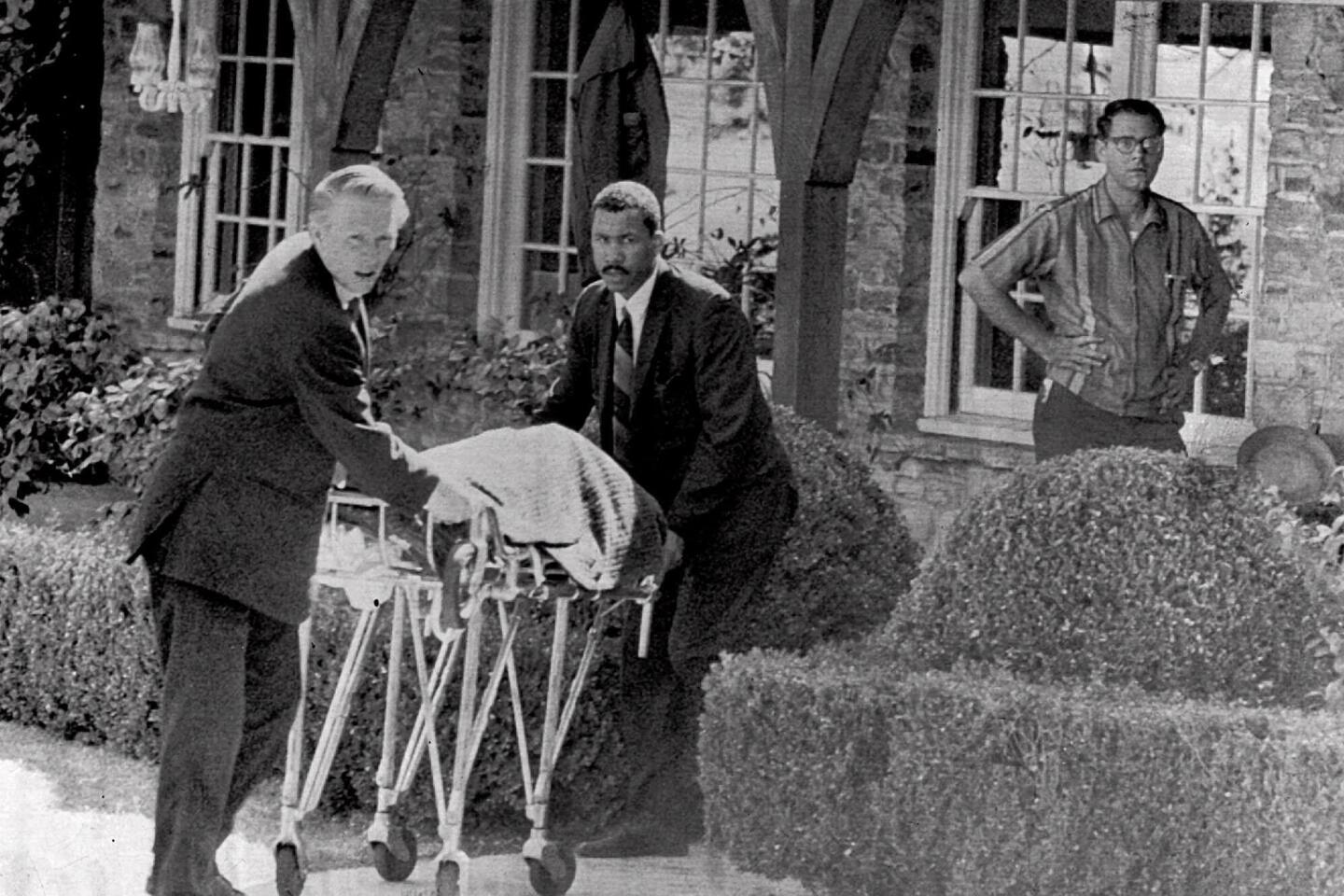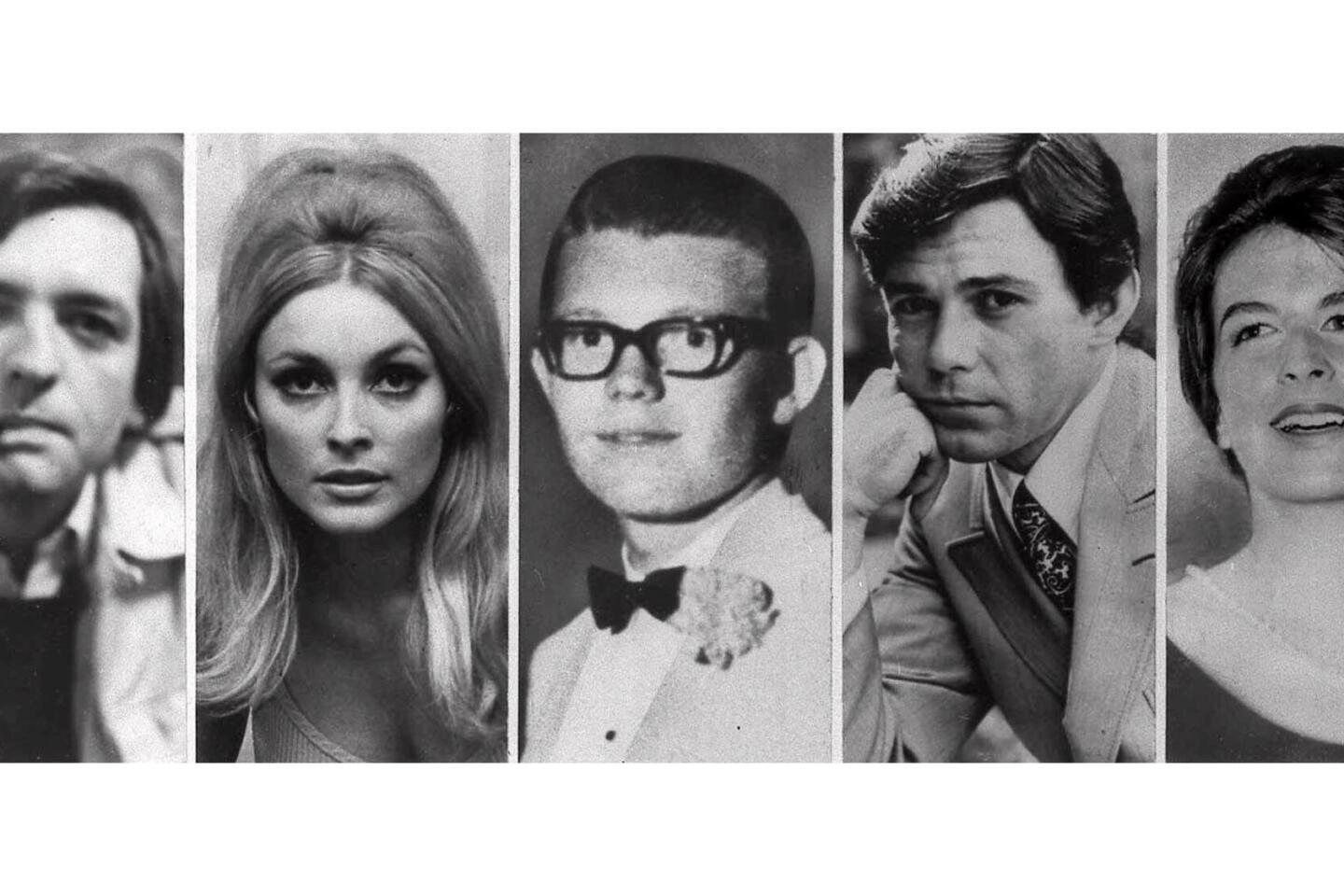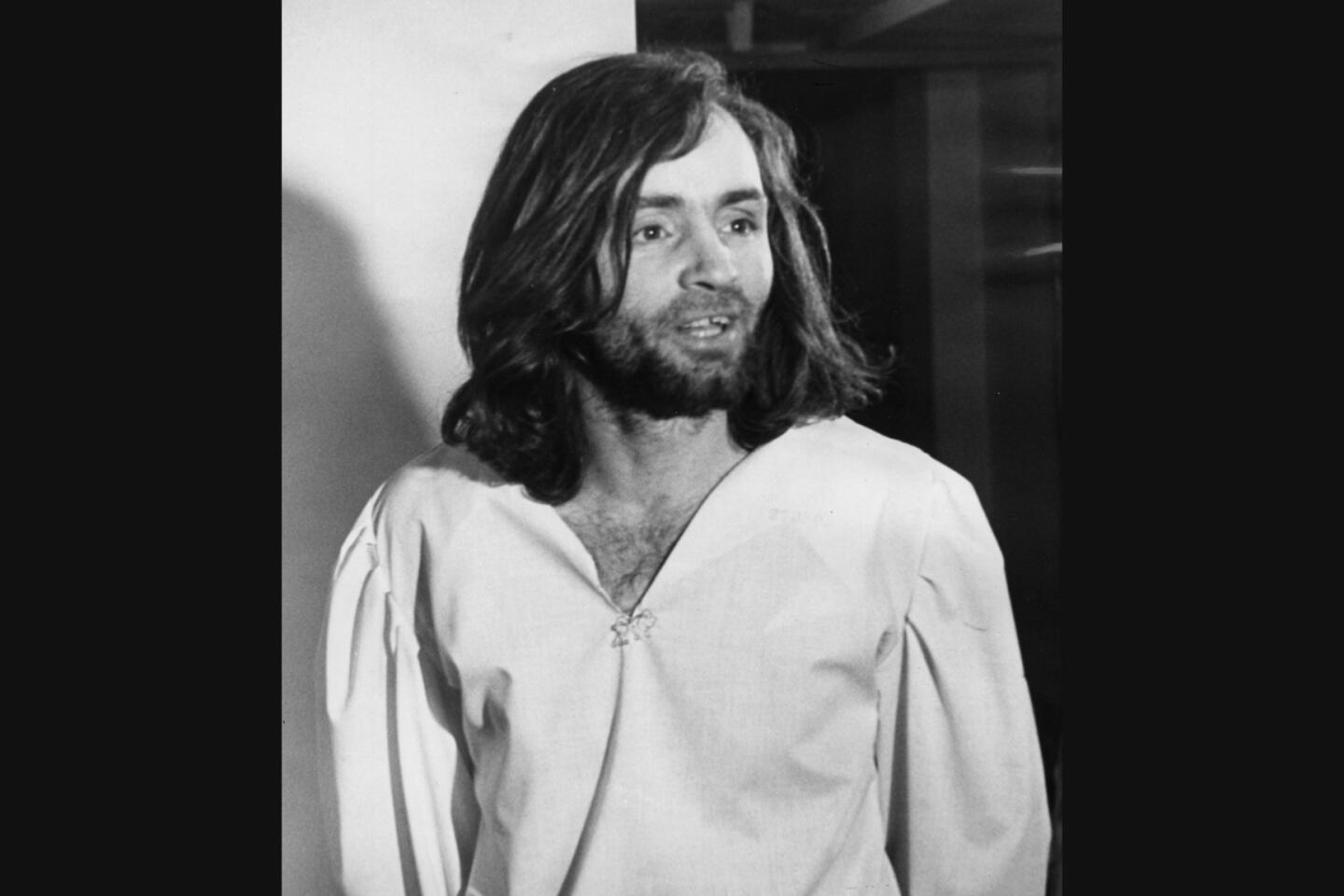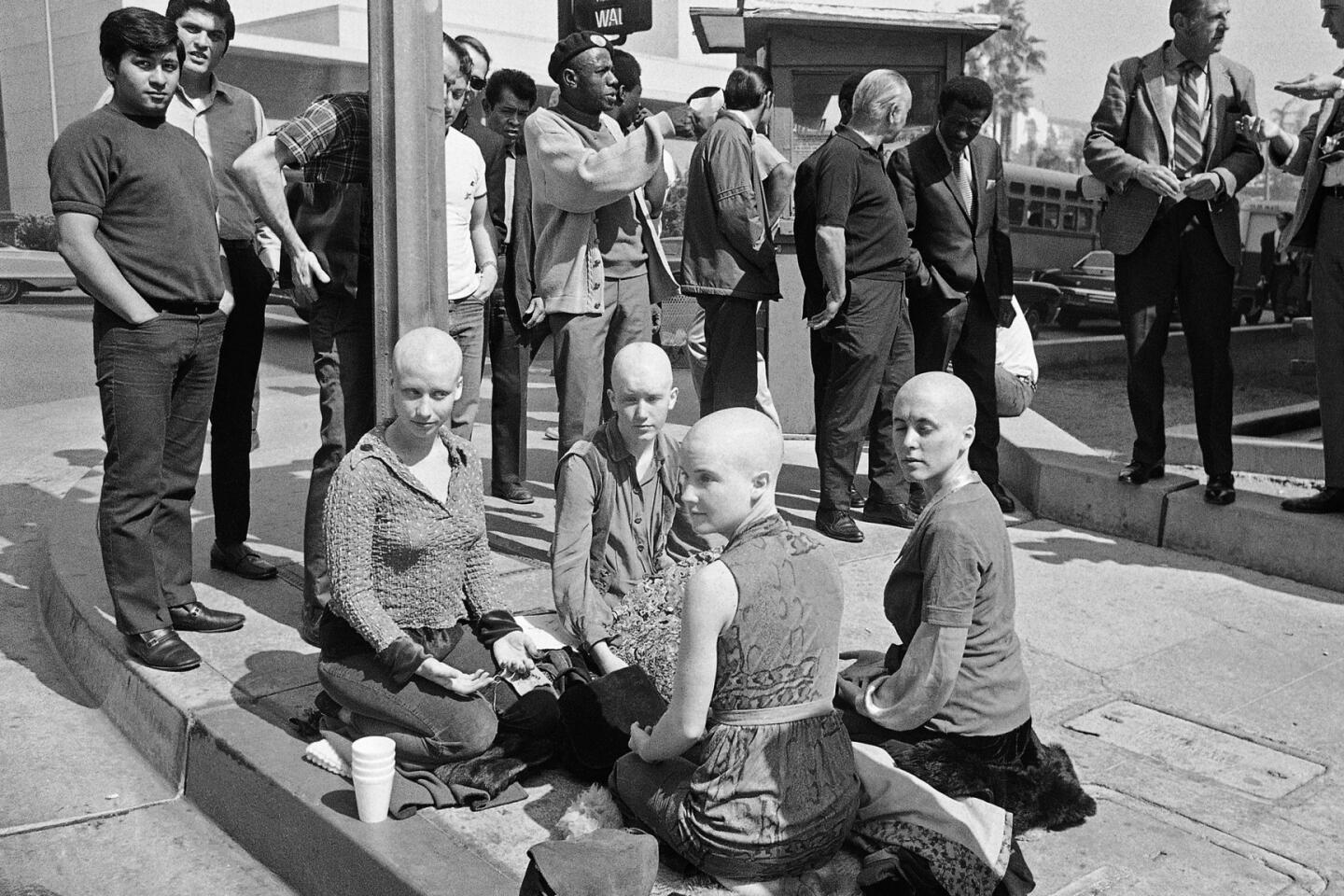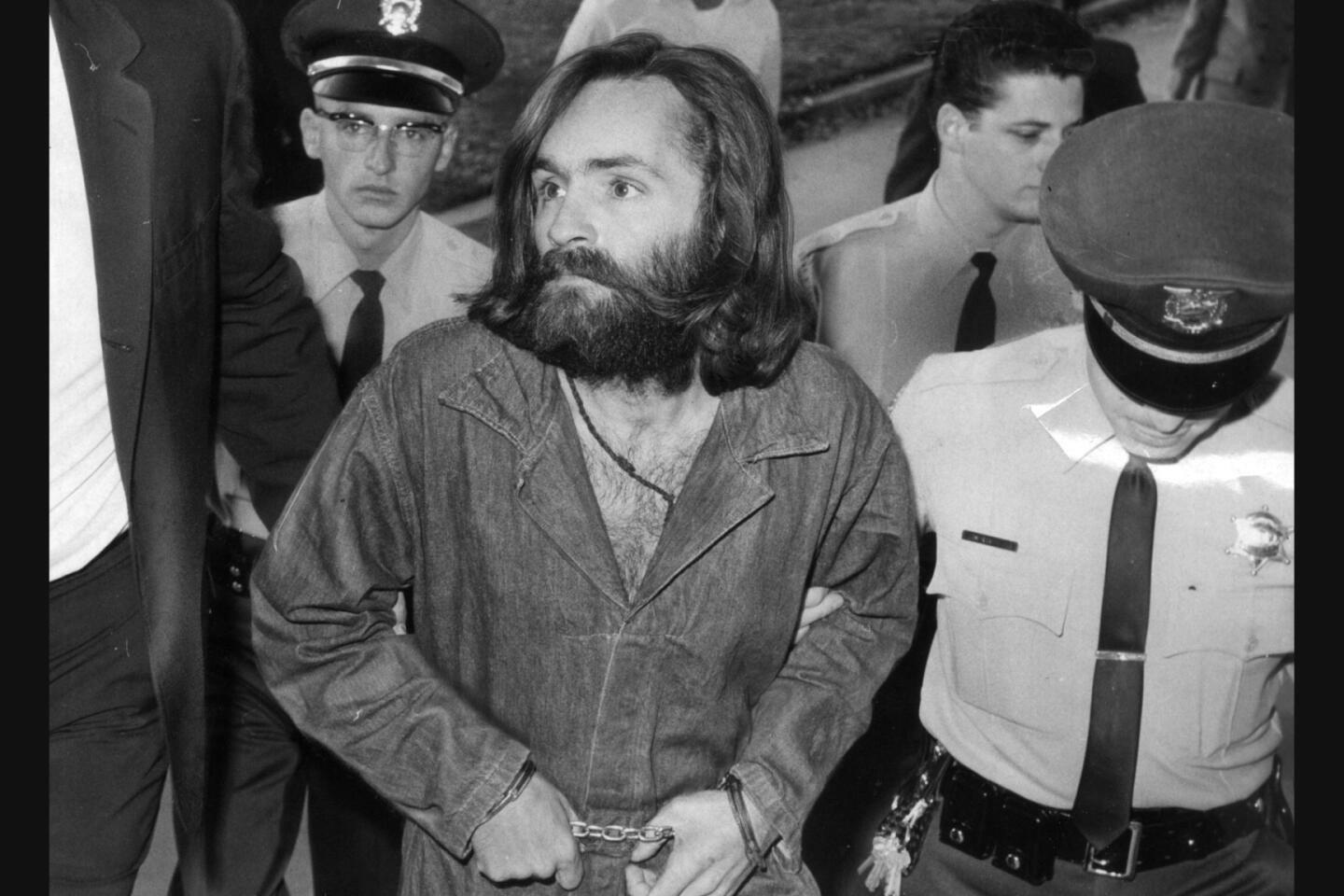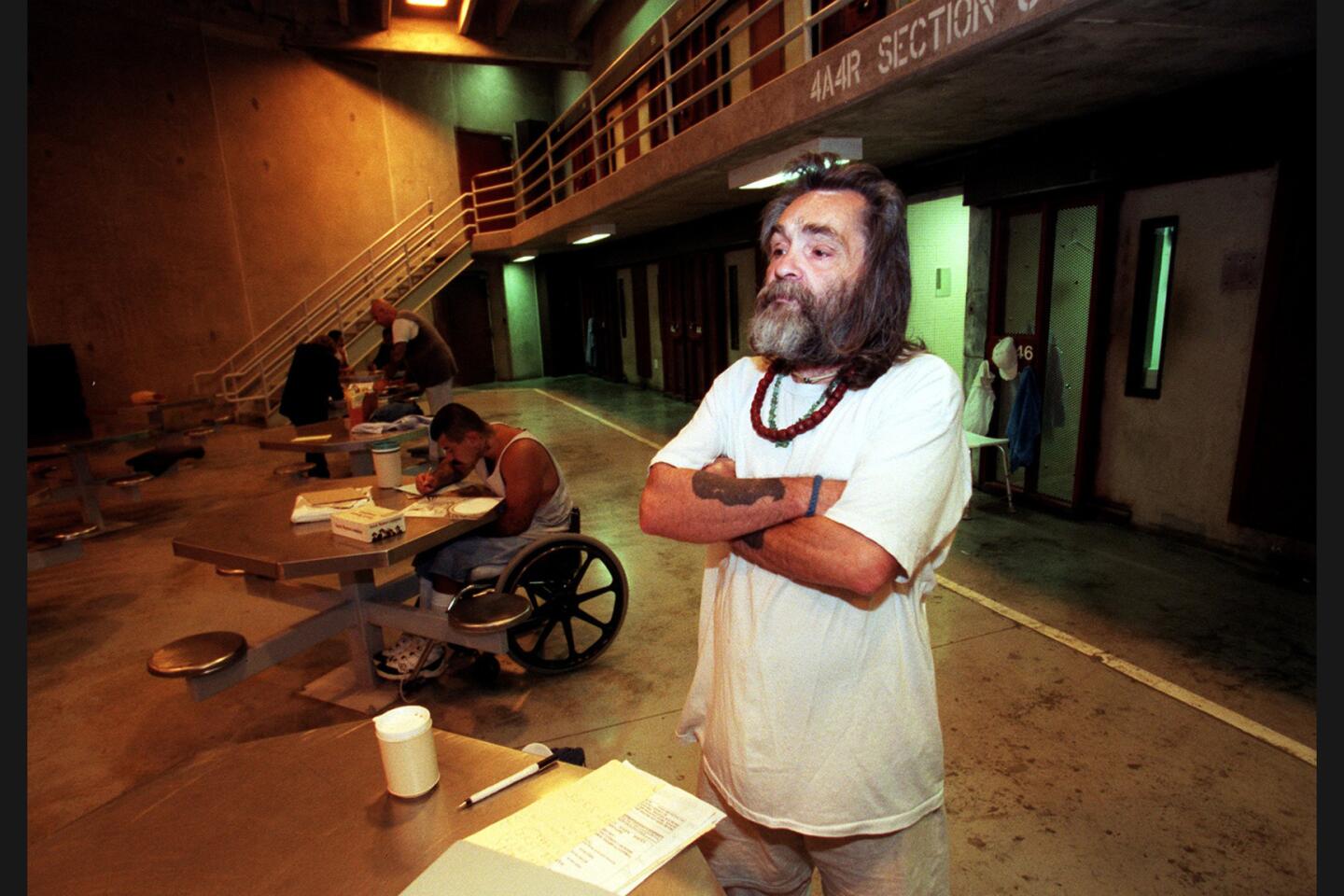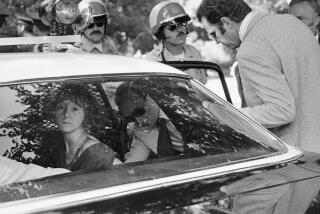Manson follower’s chilling murder description: ‘We started stabbing and cutting up the lady’
- Share via
As Charles Manson follower Leslie Van Houten faces the possibility of parole in the killing of Rosemary LaBianca, her own words might come back to haunt her.
In 1971, Van Houten spoke in chilling detail about the killings during her trial. She was not involved in the first of the two Manson murder sprees, in which Sharon Tate and her friends were killed in Bel Air. But days later, in 1969, the then 19-year-old was one of the Manson family members who killed Los Feliz grocer Leno LaBianca and his wife, Rosemary, at their home.
Van Houten testified that she held down Rosemary LaBianca as Charles “Tex” Watson stabbed her husband. After Watson stabbed LaBianca in her bedroom, he handed Van Houten a knife. She testified to stabbing the woman at least 14 more times.
“And I took one of the knives, and Patricia had one knife, and we started stabbing and cutting up the lady,” Van Houten testified in 1971. (Patricia Krenwinkle was a co-defendant and a Manson family member).
Van Houten described the killing of Rosemary LaBianca, who offered anything to have her life spared.
She said she got into a fight with LaBianca, prompting Krenwinkle to go the kitchen and return to the bedroom with “a whole bunch of kitchen utensils,” including knives.
She said LaBianca kept promising not to call the police and pleaded for her life.
“And it seemed like the more she said ‘police,’ the more panicked I got,” Van Houten testified.
Van Houten went through three trials for her role in the killings. The first led to her conviction and a death sentence, which was overturned on appeal because her lawyer disappeared before the verdict.
The second trial ended with a hung jury, and the third led to her murder conviction and sentence of seven years to life with the possibility of parole.
On Thursday, a review board recommended parole for Van Houten, 66. The ruling will be reviewed by the parole board’s legal team. If upheld, it will be forwarded to Gov. Jerry Brown, who could decide to block Van Houten’s release. A spokesman for the governor said Thursday that it would be premature for his office to comment.
See the most-read stories this hour >>
LaBianca’s daughter has said she opposed release for Van Houten.
Last summer, a review board recommended parole for Manson associate Bruce Davis, who was convicted in the 1969 slayings of Gary Hinman and Donald “Shorty” Shea. He was not involved in the Tate-LaBianca murders.
In January, Brown rejected parole for the 73-year-old, stating that “Davis’ own actions demonstrate that he had fully bought into the depraved Manson family beliefs.”
Supporters describe Van Houten as a misguided teen under the influence of LSD on the night of the killings. They also say she was a victim of Manson’s “mind control.”
At a 2002 parole board hearing, Van Houten said she was “deeply ashamed” of what she had done, adding: “I take very seriously not just the murders, but what made me make myself available to someone like Manson.”
Join the conversation on Facebook >>
Van Houten’s attorney, Rich Pfeiffer, has said his client was long overdue for release, listing her accomplishments behind bars: earning bachelor’s and master’s degrees, running self-help groups and facilitating victim-offender reconciliation sessions.
According to comments published by the Associated Press, Commissioner Ali Zarrinnam told Van Houten: “Your behavior in prison speaks for itself. Forty-six years and not a single serious rule violation.”
ALSO
Charles Manson marriage license to expire: He’s still single
Susan Atkins dies at 61; imprisoned Charles Manson follower
There was much more to Vincent Bugliosi than the Charles Manson case
For the third time, Brown rejects parole of Manson follower Bruce Davis, 73
‘Helter Skelter’ by Vincent Bugliosi: Read the 1974 L.A. Times book review
More to Read
Sign up for Essential California
The most important California stories and recommendations in your inbox every morning.
You may occasionally receive promotional content from the Los Angeles Times.
